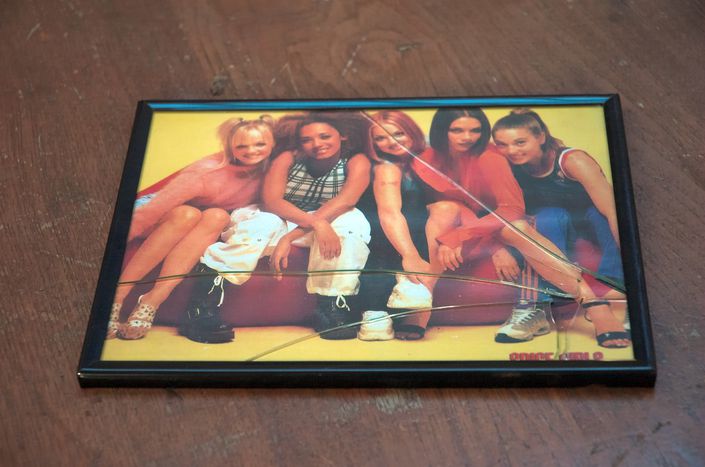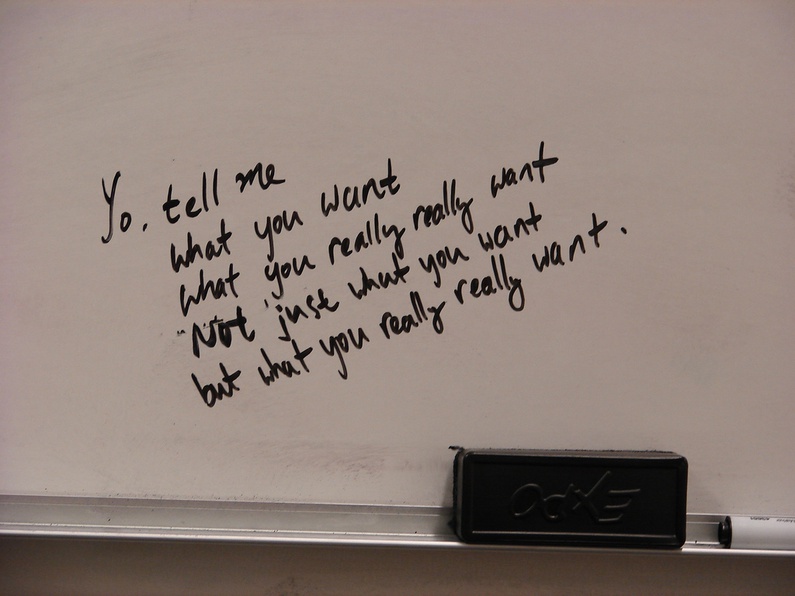
Girl Power! or: the feminist legacy of the Spice Girls
Published on
Translation by:
Emily SpencerBe who you are, do what you want - and in the process, have fun.
The Spice Girls and I have a long, passionate history. The story starts in 1997 when, at the age of nine, I first watched the film Spiceworld. "We're the Spice Girls, yes indeed. Just Girl power is all we need," proclaimed Emma, Geri, Victoria, Mel B and Mel C - and I fell in love with them. I bought both of their albums, collected snippets from magazines about them, had arguments with my friend Ann-Kathrin about which of us would be Geri (me of course). I didn't know any English, but I knew all of the songs off by heart. Eventually, I grew up - at least I thought that I was grown up: the Spice Girls posters disappeared from my bedroom walls and the CDs started to gather dust on the shelves. Yet, at the parties of the '90s and '2000s, I indulged (and still indulge) my inner girl-groupie. Is that "Wannabe" I hear? To the dance floor!
 After completing the Abitur, (the German equivalent of A-Levels) I moved to France to study at the Institut d'etudes politiques in Lille - and came under the direction of Miss Monganne, the English teacher. Miss Monganne liked to take an experimental approach to her seminars, so one day we were asked to give a presentation on the theme of "Great Britain's greatest contribution to world history." The presentation had to be 15 minutes long, and without any notes - a little like a TED Talk, before anyone knew what they were. My classmates spoke about whisky, Jack the Ripper (what contribution he made to world history remains unclear - apart from leaving a number of women dead) and Monty Python. I spoke about the Spice Girls. Or, rather Girl Power. Because, as everyone knows, the Spice Girls created Girl Power and in so doing made a valuable contribution to world history. Miss Monganne was sceptical: "But Julia, was it reeeeeally the Spice Girls?"
After completing the Abitur, (the German equivalent of A-Levels) I moved to France to study at the Institut d'etudes politiques in Lille - and came under the direction of Miss Monganne, the English teacher. Miss Monganne liked to take an experimental approach to her seminars, so one day we were asked to give a presentation on the theme of "Great Britain's greatest contribution to world history." The presentation had to be 15 minutes long, and without any notes - a little like a TED Talk, before anyone knew what they were. My classmates spoke about whisky, Jack the Ripper (what contribution he made to world history remains unclear - apart from leaving a number of women dead) and Monty Python. I spoke about the Spice Girls. Or, rather Girl Power. Because, as everyone knows, the Spice Girls created Girl Power and in so doing made a valuable contribution to world history. Miss Monganne was sceptical: "But Julia, was it reeeeeally the Spice Girls?"
Of course, it was! We can only really understand the legacy of the Spice Girls when we take a look back at the music industry of the mid-90s. At the time, there was no Beyoncé, no Rihanna, no Taylor Swift to spread a confident, feminist message. Instead, there were boy bands, from Take That to the Britpop of Oasis. In the USA, the Riot Grrrl underground feminist hardcore punk movement gained followers and Alanis Morissette used songs like "You Oughta Know" as a way to channel her anger, but her music seemed to be too edgy for most people.
Susan Faludi wrote the book Backlash about the setback that the feminist movement was experiencing at the time: Feminism was considered a dirty word and supposedly wasn't used. This is where the Spice Girls came into play. They were loud, cheeky, colourful and fearless. They sang about female friendship. ("If you wanna be my lover, you gotta get with my friends"), safe sex ("Put it on, put it on") and stressed the importance of being yourself ("Come on and do it/ Don't care how you look it's just how you feel"). Wherever they were and wherever they went, the Spice Girls spread "Girl Power", a concept that member Victoria defined as the readiness to "Be who you are, do what you want to do and make friends with other girls."
"Loud, cheeky, colourful and fearless"
It is clear, that their notion of girl power wasn't as sophisticated as that expressed in Judith Butler's Gender Trouble or Germaine Greer's The Female Eunuch. The Spice Girls were clearly not perfect feminists: they disassociated themselves from the term "Feminism" in favour of Girl Power, declaring "Iron Lady" Margaret Thatcher the "first Spice Girl". Girl Power is a '90s term for feminism, wrote the Spice Girls in their biography. In spite of this, or maybe because of it, the Spice Girls successfully brought the feminist message to the mainstream: independence, equality of opportunity, freedom of speech and female solidarity. They did it shamelessly and seemed to have a lot of fun in the process. Still, it was expected that women in the public eye should neither be too loud, nor too flamboyant. The Spice Girls didn't care, they behaved as though they were having fun.
Spice Girls vs Judith Butler
via GIPHY
Of course, this was part of the marketing strategy. Ultimately, the Spice Girls were created to appeal to young women and to sell a large number of CDs. But they still did things their way. When their management and record label refused to realise their artistic vision, the Spice Girls simply looked for another record label, taking their recordings with them. In principle, the Spice Girls were like a Trojan Horse. Sneakily infiltrating the mainstream with their feminist views. Their way of doing feminism was fun and accessible; they encouraged girls and women, who wouldn't otherwise have thought about feminism, to care about the feminist cause. The path to feminism is diverse - and some people discovered it because of five loud British girls, rather than through Judith Butler.
I have read Judith Butler, and Germaine Greer, but the fact remains: the Spice Girls shaped my feminist beliefs. Be yourself, do your own thing - that is how I try to live my life. And I am not the only one. Girl Power is a concept which many young women still believe in today: to celebrate the twentieth anniversary of "Wannabe" on 7 July 2016, Global Goals Campaign published a new version of the music video to bring global attention to equal rights. It may not be what we need, but given the fact that - when it comes to gender equality - progress is still being made too slowly, a proper dose of Girl Power surely won't do any harm.
Translated from Girl Power oder das feministische Vermächtnis der Spice Girls



